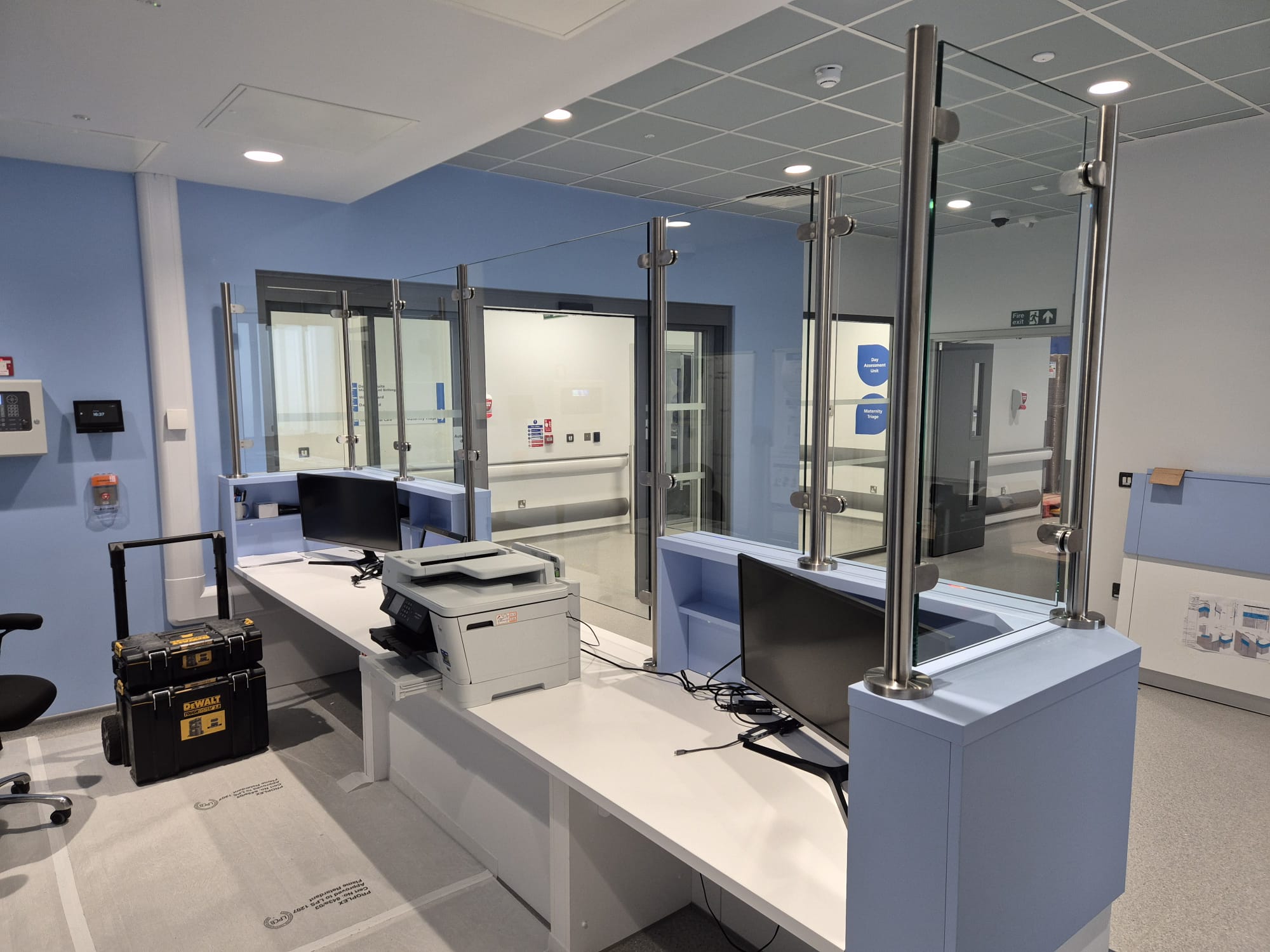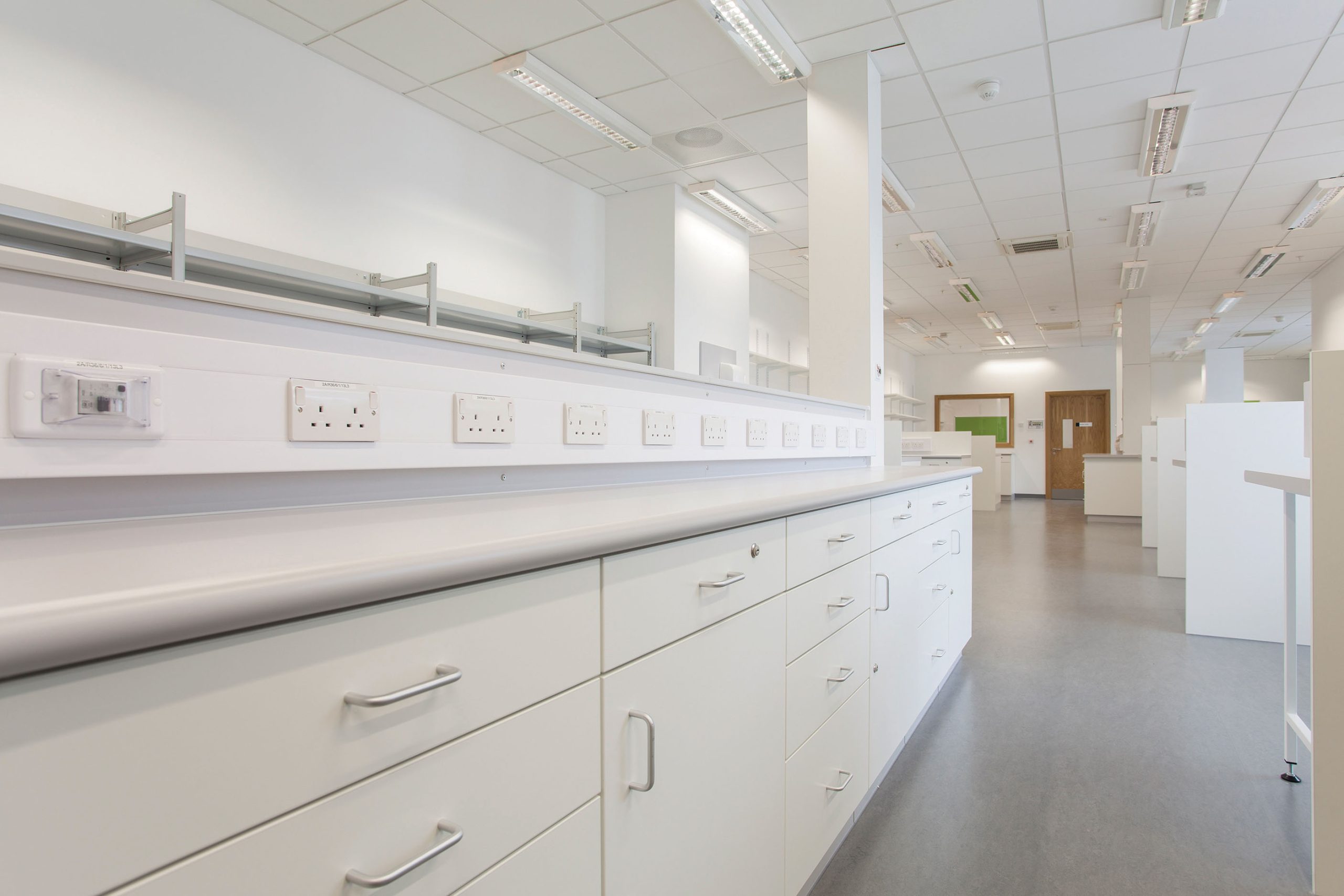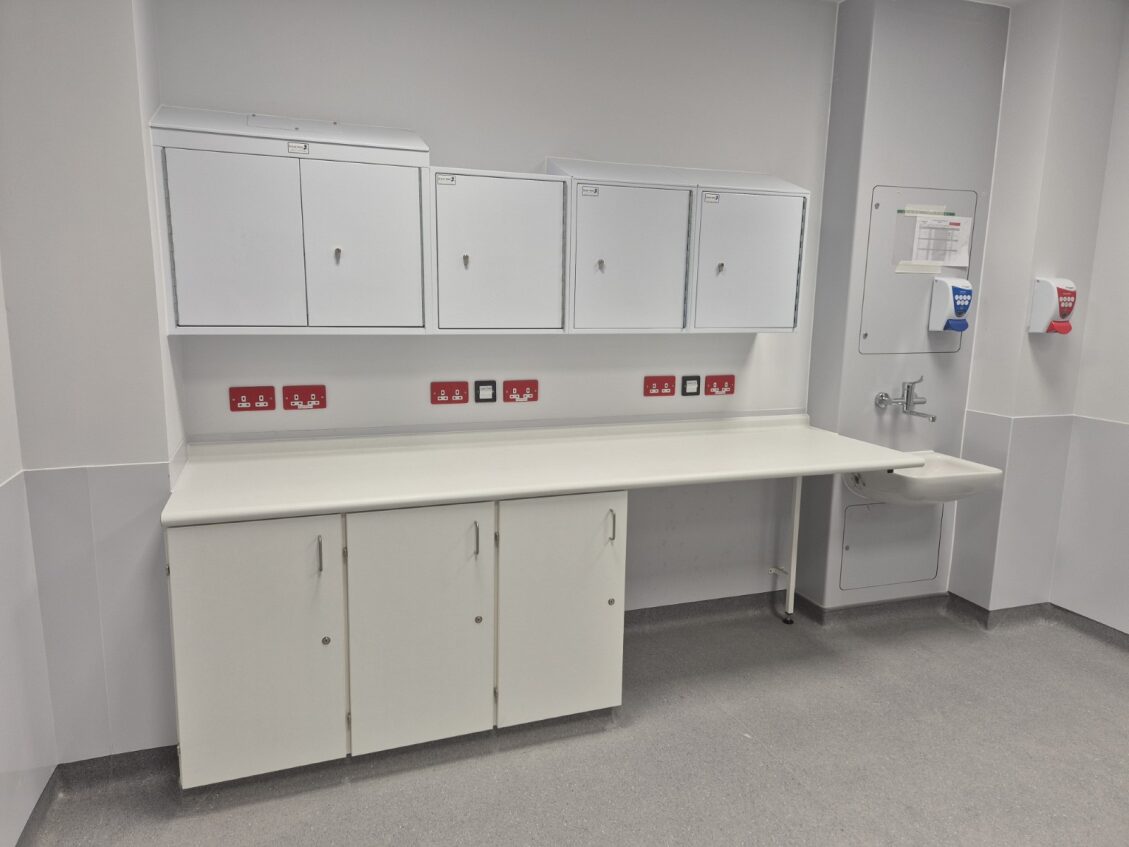You are probably talking about storage units, but we know what you mean. It’s a…

How good fitted furniture design is protecting frontline healthcare workers
The safety of NHS staff has become one of the most pressing challenges facing healthcare leaders. Every day, doctors, nurses and support teams deliver care under increasing pressure – yet too often, their workplaces are unable to protect them. Violence, abuse and harassment towards NHS staff have risen sharply in recent years, with one in seven reporting a physical attack in 2024. In response, hospitals and healthcare designers are now rethinking the spaces in which care happens – and that rethink begins with the right furniture and fittings, writes Tony Huggins, managing director at David Bailey Furniture.
As the health service confronts this crisis, hospitals and designers are looking at how physical space can support staff safety and wellbeing. One vital, but often overlooked part of that conversation lies in the best use of fitted furniture and fixtures that define frontline environments. The shape of a reception desk, the positioning of a counter, or the installation of protective screens can dramatically influence how safe a workplace feels and how effectively staff can perform their roles.
Furniture as the first line of protection
In high-traffic environments such as reception areas, outpatients, or emergency departments, fitted furniture is the first line of defence. Counters, screens and desks are not just fixtures – they are points of contact that must balance openness with security.
For example, safety screens, recently installed by David Bailey Furniture at Luton & Dunstable University Hospital were designed around these principles. Constructed with robust materials and clean sightlines, they have provided physical protection from potential aggression while preserving the sense of human connection essential to patient care. The result is an environment that feels calm, professional and safe for staff and visitors alike.
This approach is part of a broader move towards defensive design that does not compromise compassion. Good fitted furniture allows for safer interactions, reducing the risk of confrontation and giving staff confidence that their workspace has been built with their safety in mind.
The human cost of unsafe workspaces
As already mentioned, the latest NHS Staff Survey shows a disturbing reality with incidents of violence, verbal abuse and harassment at their highest levels in half a decade. Nearly 50% of NHS workers say they have faced verbal aggression in the past year, while physical attacks are rising, particularly in emergency, mental health and administrative settings.
The effects go far beyond the immediate trauma. Fear and fatigue erode morale and retention, driving experienced staff from the profession. In turn, this adds strain to already stretched services and affects patient care.
For NHS Trusts, this is not just a morale issue, but a practical one. A safe working environment protects staff wellbeing, reduces absence and supports long-term service quality. It’s also a reputational imperative where hospitals must demonstrate that they are taking visible, tangible steps to protect their people.
Designing environments that care for staff
This is where design and specifically, good fitted furniture, plays such an important role. The way a nurses’ station is configured, how a reception desk is positioned, or whether staff can step back into a secure space can all influence outcomes.
Good healthcare furniture is designed with these realities in mind. Every counter, unit and screen can be designed to meet infection control standards, impact resistance and ergonomic needs. More importantly, these elements also work together to create spaces that feel calm, efficient and safe. Fitted furniture can combine protection with practicality. This is why in hospitals across the UK, such design-led interventions are becoming standard practice, not as a reaction, but as a proactive strategy for protecting staff and improving care delivery.
The NHS’s greatest asset will always be its people – the doctors, nurses and administrators who keep the system running. As pressure mounts on the health service, safeguarding those people has never been more important.
For us at David Bailey Furniture Systems, the commitment to staff safety is a natural extension of our wider design philosophy and why every piece of fitted furniture should enhance wellbeing, efficiency and safety in equal measure.
By designing spaces that protect NHS staff, through durable fitted furniture, protective screens and thoughtful spatial planning, we can help hospitals turn care into something more tangible. Because when the people who care for us feel safe, the whole health system becomes stronger.








